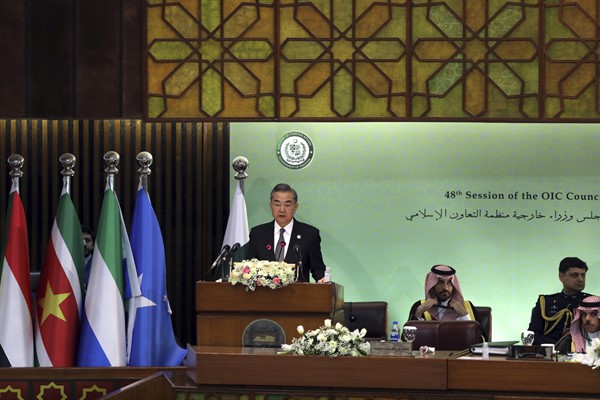China’s positioning with regard to Russia’s invasion of Ukraine has been in the spotlight in recent weeks, and it is likely to be a central topic of discussion at the China-European Union Summit scheduled to be held this Friday. But for Beijing, which is seeking to mend fences and shore up ties with countries in South Asia, diplomacy closer to home remains a priority as well.
Last week, Chinese Foreign Minister Wang Yi completed a six-day tour of the region, including unannounced stops in Afghanistan, India and Nepal. Wang began his trip in Islamabad, where he met with Pakistani Prime Minister Imran Khan and attended a foreign ministers meeting of the Organization of Islamic Cooperation, or OIC, as a special guest. The meeting between Wang and Khan, which featured both sides emphasizing their “iron-clad friendship,” ended with the signing of five agreements to strengthen bilateral cooperation in the areas of agriculture and education. Upon departing Islamabad, Wang made a brief stop in Kabul, which marked the highest-level visit by a Chinese official to Afghanistan since the Taliban retook power last year.
But while Wang was met with a warm welcome from his Pakistani and Afghan hosts, he arrived to a chilly reception in India, underscoring the difficulty of his task in New Delhi. The surprise visit, which was kept a secret at Beijing’s request, marked the first by a Chinese foreign minister to India since deadly clashes in 2020 in the Ladakh region of Kashmir strained diplomatic ties between the two neighboring countries.

